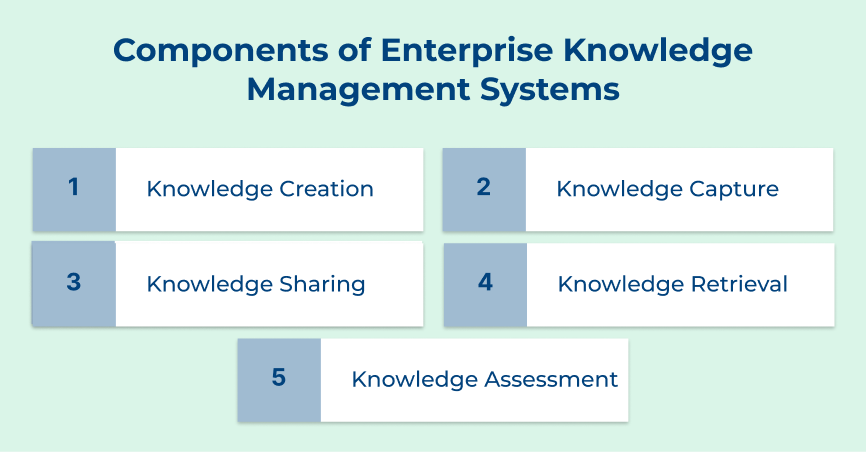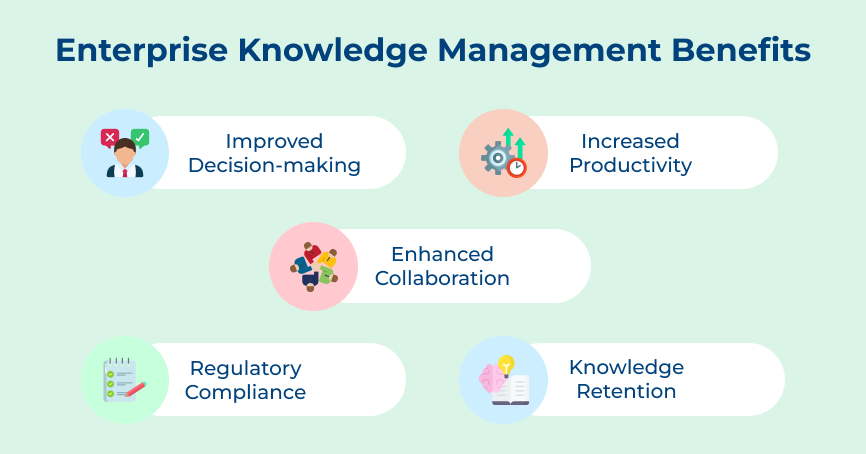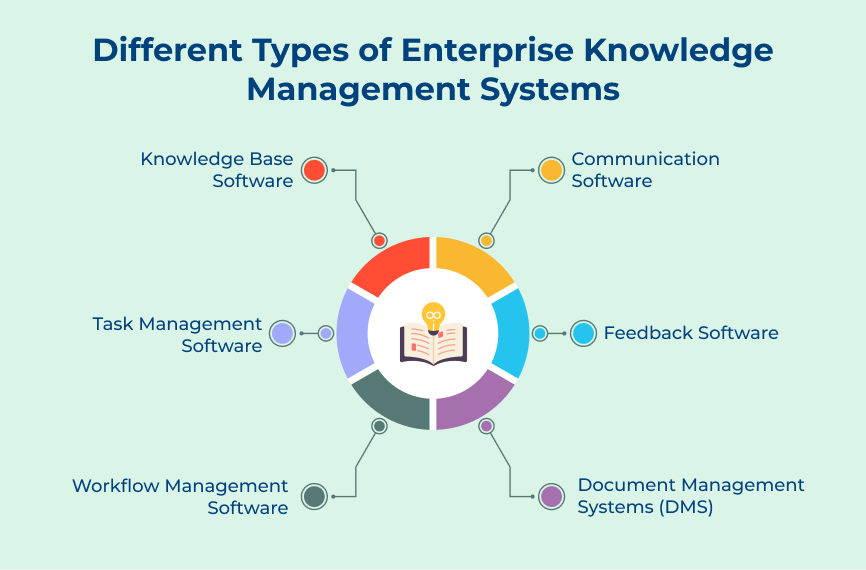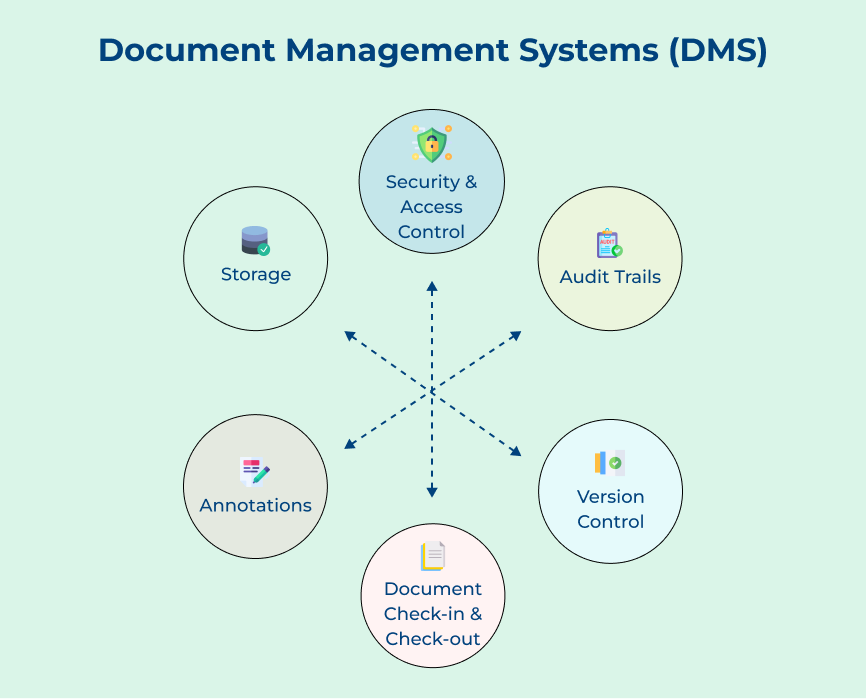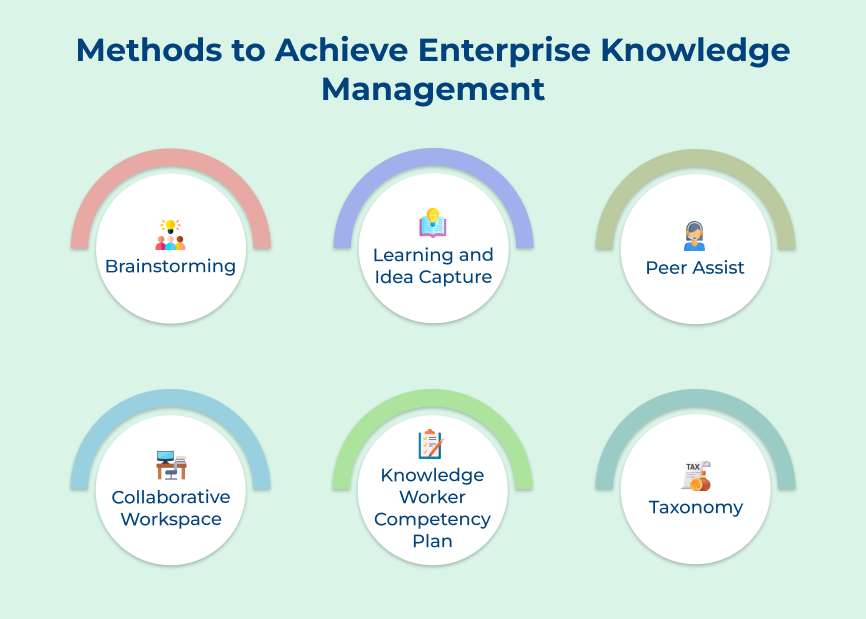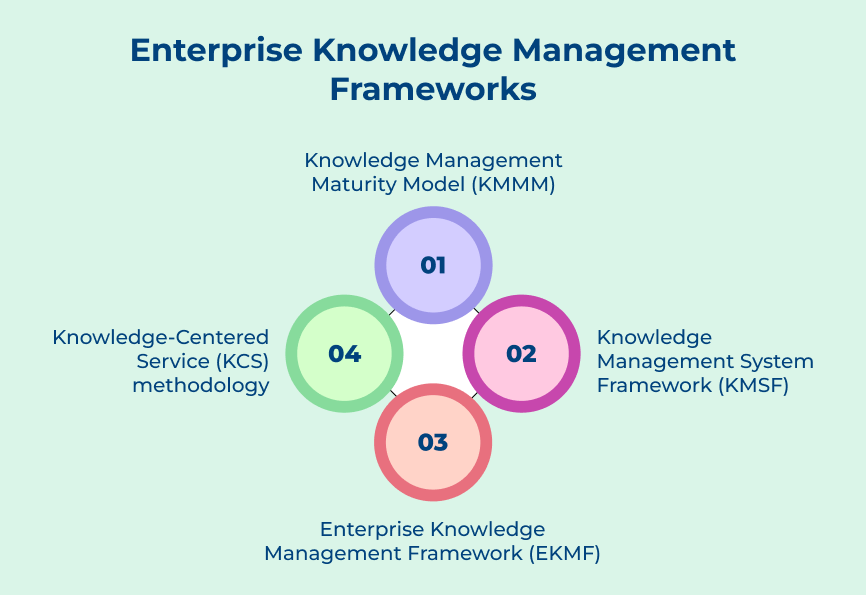DMS helps businesses with knowledge management by ensuring that important documents and information are easily accessible to all employees. It promotes collaboration, improves workflow efficiency and enhances decision-making processes within the organization. Key features of Document Management Systems include version control, document indexing, security controls, workflow automation and integration with other business systems.
Pro tips
- Auditing: Conduct a thorough document audit to understand the types of documents the organization produces and how they are currently managed.
- Train employees: Train on how to use the DMS effectively. Provide clear guidelines on document storage, naming conventions and access permissions to ensure consistency.
Enterprise Knowledge Management Examples
Several enterprises have successfully implemented strategies focused on knowledge management, resulting in positive impacts on their business operations. Here are the primary enterprise knowledge management examples that businesses must learn from:
1. Google
Google is a prime example of a brand that has mastered enterprise knowledge through its search engine technology. Google provides users with relevant information at their fingertips by efficiently organizing and indexing vast amounts of data from across the web.
The approach has not only solidified Google’s position as a leading search engine but has also enabled businesses to reach their target audience through optimized search results. Google’s commitment to knowledge management has reinforced its brand reputation, leading to increased user engagement and advertising revenue.
2. Microsoft
Microsoft has invested heavily in enterprise knowledge management solutions to enhance collaboration and knowledge sharing within its organization. Microsoft Teams, SharePoint and other tools have enabled employees to leverage information more effectively, resulting in improved productivity. Microsoft’s focus on knowledge management has promoted a culture of continuous knowledge sharing, driving business growth and competitiveness in the tech industry.
3. Amazon
Amazon excels in knowledge management through its sophisticated recommendation algorithms and customer data analysis. Leveraging customer insights allows Amazon to deliver personalized product recommendations, anticipate consumer preferences and enhance the overall shopping experience. Amazon’s focus on enterprise knowledge management applications has driven customer loyalty, increased sales revenue and solidified its position as a market leader in e-commerce.
Top 4 Enterprise Knowledge Management Platforms
Let’s take a closer look at the top enterprise knowledge management platforms to understand how they can streamline information sharing and support the unique needs of modern businesses.
1. Veemo Support
Veemo Support is an AI powered help desk as well as enterprise knowledge management platform that centralizes organizational knowledge through an intuitive, cloud-based system. It combines knowledge base functionality with ticket management and automation capabilities which allows businesses streamline their information sharing processes.
What sets Veemo support apart is its unified approach to knowledge management and customer support. Rather than treating these as separate functions, Veemo support integrates them seamlessly, enabling organizations to automatically convert support interactions into knowledge base articles while maintaining consistent information across all channels. The integration significantly reduces response times and improves service quality.
Essential features:
- Knowledge base organization with categorization and tagging for efficient content retrieval.
- Multi-channel support integration that synchronizes information across email, chat and phone communications.
- Customizable workflows that automatically route inquiries and update knowledge base content based on user interactions.
- Advanced analytics dashboard providing insights into knowledge base usage and content effectiveness.
- Role-based access control ensures appropriate information security while facilitating collaboration.
2. Omni24
Omni24 is a comprehensive enterprise knowledge management platform that integrates customer service capabilities with robust knowledge base functionalities. The platform combines AI-powered search, content management and collaboration tools to help organizations leverage their institutional knowledge while simultaneously supporting customer service operations.
Key features:
- AI-powered intelligent search that learns from user behavior to deliver increasingly relevant results over time.
- Customizable knowledge base templates with version control and approval workflows to maintain content quality.
- Multilingual support with automatic translation capabilities to serve global audiences effectively.
- Real-time analytics dashboard that tracks knowledge base usage patterns and identifies content gaps.
- Integrated chatbot functionality that leverages the knowledge base to provide automated customer support.
3. Confluence
Confluence is a popular knowledge management platform that allows teams to collaborate and share information in one centralized location. It offers features such as document creation, project tracking and team communication tools. Confluence allows teams to easily create, organize and access knowledge resources, making it a valuable tool for businesses of all sizes.
4. Bloomfire
Bloomfire is a knowledge management platform that focuses on improving collaboration and knowledge sharing within the organization. It offers features such as content creation, knowledge sharing and social learning tools. Bloomfire enables employees to access information, ask questions and collaborate on projects. It also provides insights into the engagement and performance of the knowledge base through analytics.
Methods & Techniques to Achieve Enterprise Knowledge Management
Following are some of the most effective methods and techniques to achieve enterprise knowledge management, guiding you toward harnessing the full potential of your team’s collective intelligence.






